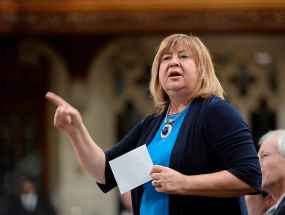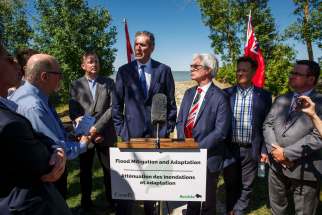Winnipeg MP asks why Manitoba First Nations suffer more from wildfires than those in other provinces
Read this article for free:
or
Already have an account? Log in here »
To continue reading, please subscribe:
Monthly Digital Subscription
$0 for the first 4 weeks*
- Enjoy unlimited reading on winnipegfreepress.com
- Read the E-Edition, our digital replica newspaper
- Access News Break, our award-winning app
- Play interactive puzzles
*No charge for 4 weeks then price increases to the regular rate of $19.00 plus GST every four weeks. Offer available to new and qualified returning subscribers only. Cancel any time.
Monthly Digital Subscription
$4.75/week*
- Enjoy unlimited reading on winnipegfreepress.com
- Read the E-Edition, our digital replica newspaper
- Access News Break, our award-winning app
- Play interactive puzzles
*Billed as $19 plus GST every four weeks. Cancel any time.
To continue reading, please subscribe:
Add Free Press access to your Brandon Sun subscription for only an additional
$1 for the first 4 weeks*
*Your next subscription payment will increase by $1.00 and you will be charged $16.99 plus GST for four weeks. After four weeks, your payment will increase to $23.99 plus GST every four weeks.
Read unlimited articles for free today:
or
Already have an account? Log in here »
Hey there, time traveller!
This article was published 19/06/2018 (2735 days ago), so information in it may no longer be current.
OTTAWA — A parliamentary committee says it’s time Manitoba, Ottawa and First Nations co-ordinate how each prevent and respond to fires on reserves, arguing unclear jurisdiction is putting lives in danger.
“It’s been extremely dangerous,” said Kildonan-St. Paul MP MaryAnn Mihychuk. “The whole system needs to be redone.”
Mihychuk chairs the House of Commons’ Indigenous-affairs committee, which Tuesday tabled a report aimed at preventing wildfires and firetrap living conditions for First Nations people.
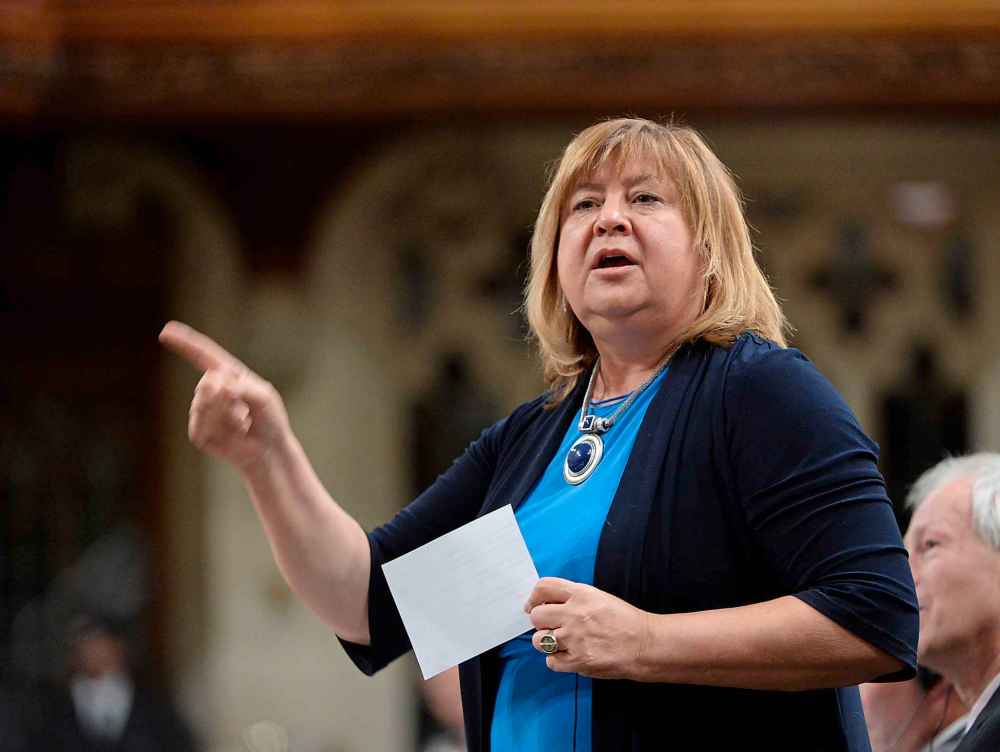
For months, she’s been asking officials why Manitoba’s First Nations seem to be worse off than those in British Columbia, where authorities seem to get wildfires under control quicker.
Tuesday’s report comes less than a month after 1,400 residents were evacuated from Little Grand Rapids and Pauingassi in northern Manitoba, a move First Nations leaders claim could have been avoided if federal and provincial heeded their calls for help days before the fire reached reserve land.
By the time it did, a chaotic evacuation resulted in hundreds huddled in a smoke-filled gym while planes couldn’t safely land.
Officials from Manitoba’s Island Lake region raised many of the same issues when testifying to the committee about last summer’s evacuations. NDP MP Niki Ashton said it is embarrassing, when compared to the professional response to wildfires such as the 2016 Fort McMurray, Alta., blaze.
Reserves need fire code: report
Beyond wildfires, Tuesday’s report also touched on issues in preventing fires that start on reserves, citing a government report First Nations people are 10.4 times more likely to die from structural fires than non-Indigenous Canadians.
Beyond wildfires, Tuesday’s report also touched on issues in preventing fires that start on reserves, citing a government report First Nations people are 10.4 times more likely to die from structural fires than non-Indigenous Canadians.
The committee found the current fire-prevention plan has a counterproductive approach, by laying out funding in successive categories: prevention, then training, followed by capital investments.
In the case of northwestern Ontario, it means communities without adequate fire education can’t access federal funds to have their buildings retrofitted with fire extinguishers and firefighting equipment.
Ottawa stopped collecting data about on-reserve fires in 2010, such as frequency and death toll, while most reserves don’t fall under their province’s building code, so homes aren’t inspected for fire prevention.
The report suggests launching a central fire commissioner for all reserves, which would help local communities come up with prevention plans and help keep tabs on evacuations.
Niki Ashton, the MP for northern Manitoba, said she’d focus more on empowering First Nations than delegating a bureaucrat in Ottawa or elsewhere to supervise them.
“What I hear from people on the ground is that you have to have folks who are closely connected,” she said.
“For First Nations, it isn’t until the 11th hour, and it’s done in a haphazard way,” said Ashton, who represents northern Manitoba. “It’s totally unacceptable that there be a second-class way of treating First Nations when it comes to evacuations.”
The federal government is in charge of most services on reserves provinces would otherwise provide, such as health care or natural disaster evacuations.
The report suggests Manitoba ink a deal with Ottawa, so the province extends its emergency-management system onto reserves and bills the federal government for that cost, as is done in B.C. and four other jurisdictions.
Currently, Manitoba instead contracts that service out to the Red Cross and has Ottawa pay the bill. First Nations leaders say it complicates already stressful emergencies.
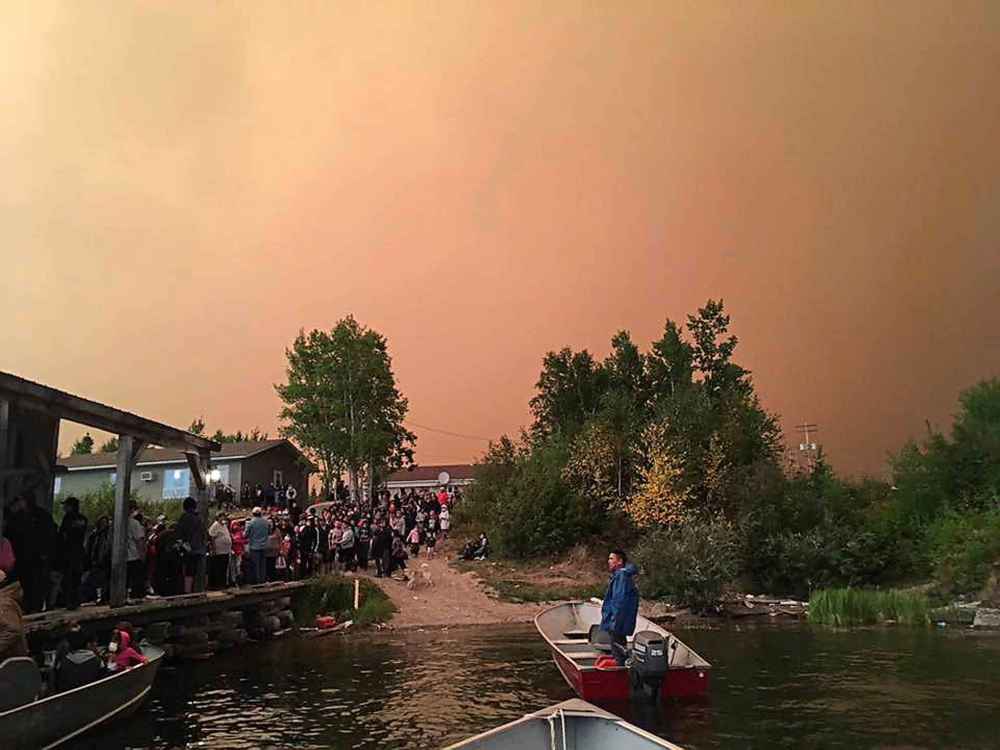
On Tuesday, a provincial spokesman said the Tory government led by Premier Brian Pallister was working with Indigenous Services Canada “to explore an agreement framework related to delivery of emergency management services to First Nations in Manitoba, similar to agreements already in place in other jurisdictions.”
The province said the process would involve the province’s First Nations on a trilateral basis.
The report also notes communication difficulties during wildfires, with limited broadband and cellular coverage in remote communities. Amid criticisms May’s evacuations had started too slow, Manitoba Infrastructure Minister Ron Schuler had suggested band officials had their cellphones turned off, or neglected to charge them.
However, Mihychuk said the “delays and just general chaos” seen in both evacuations are really a matter of Indigenous firefighters on the ground not having enough authority or resources.
“Some of that preventative (work) would have meant evacuation might not have been necessary,” she said.
Ashton had similar thoughts, but feared the report didn’t adequately highlight that many First Nations don’t have the cash to put their knowledge of firefighting and the land into use.
“First Nations have to play a driving role; they know the reality of their communities, of their territories,” she said.
“This is tied with climate change; we know there’s going to be a lot more of this (wildfires). So we better get this right, now, and avoid what Little Grand Rapids and Island Lake went through.”
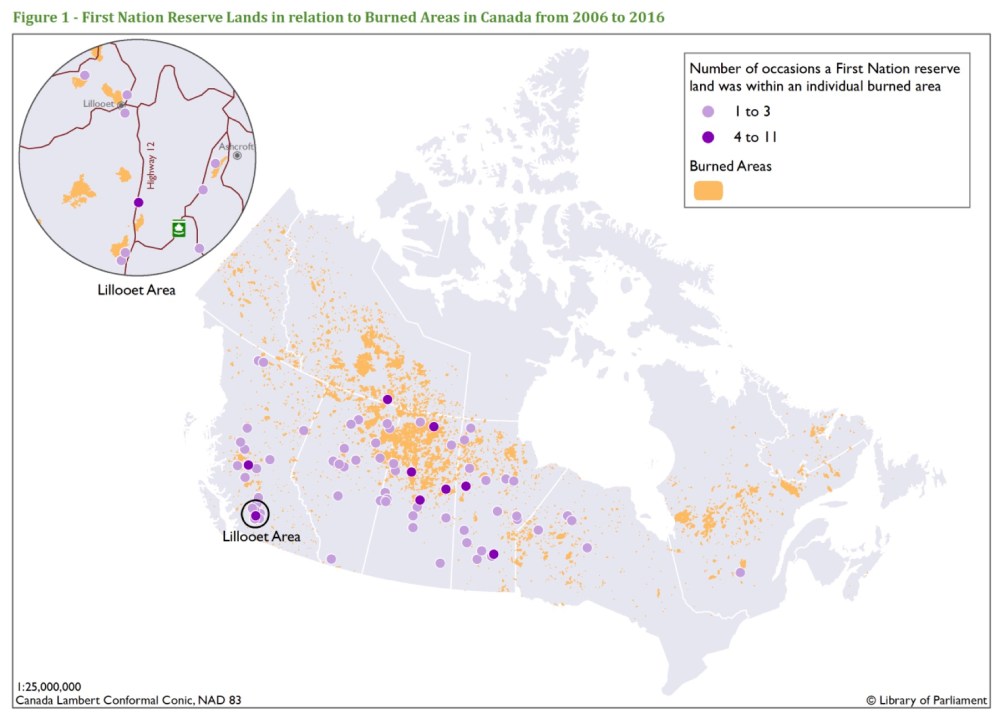
The report found when wildfires and evacuations do end, affected communities are economically devastated. Island Lake communities testified they were not compensated for many of the costs they tried expensing, while First Nations in B.C. described returning home to find animals and fish had been decimated.
That’s likely to take place for the two Manitoba reserves evacuated this spring, where the Red Cross is spending almost $1 million to replace appliances used to store game and foraged food. The appliances sat for weeks in hot weather with no power. Locals are preparing to live off canned food until their traditional sources of food return.
ISC Minister Jane Philpott said she’d “study the report in detail and follow through on recommendations.” She also defended this spring’s evacuations in Manitoba as going better than Island Lake last summer.
“Overall, the response has improved over past responses,” she said. “Any time these issues arise, there is always an opportunity to look back on the process and see what could have been done better.”
dylan.robertson@freepress.mb.ca
Indigenous-affairs committee report on First Nations wildfires
History
Updated on Tuesday, June 19, 2018 6:48 PM CDT: Updates headline
Updated on Wednesday, June 20, 2018 8:28 AM CDT: Corrects photo cutline

